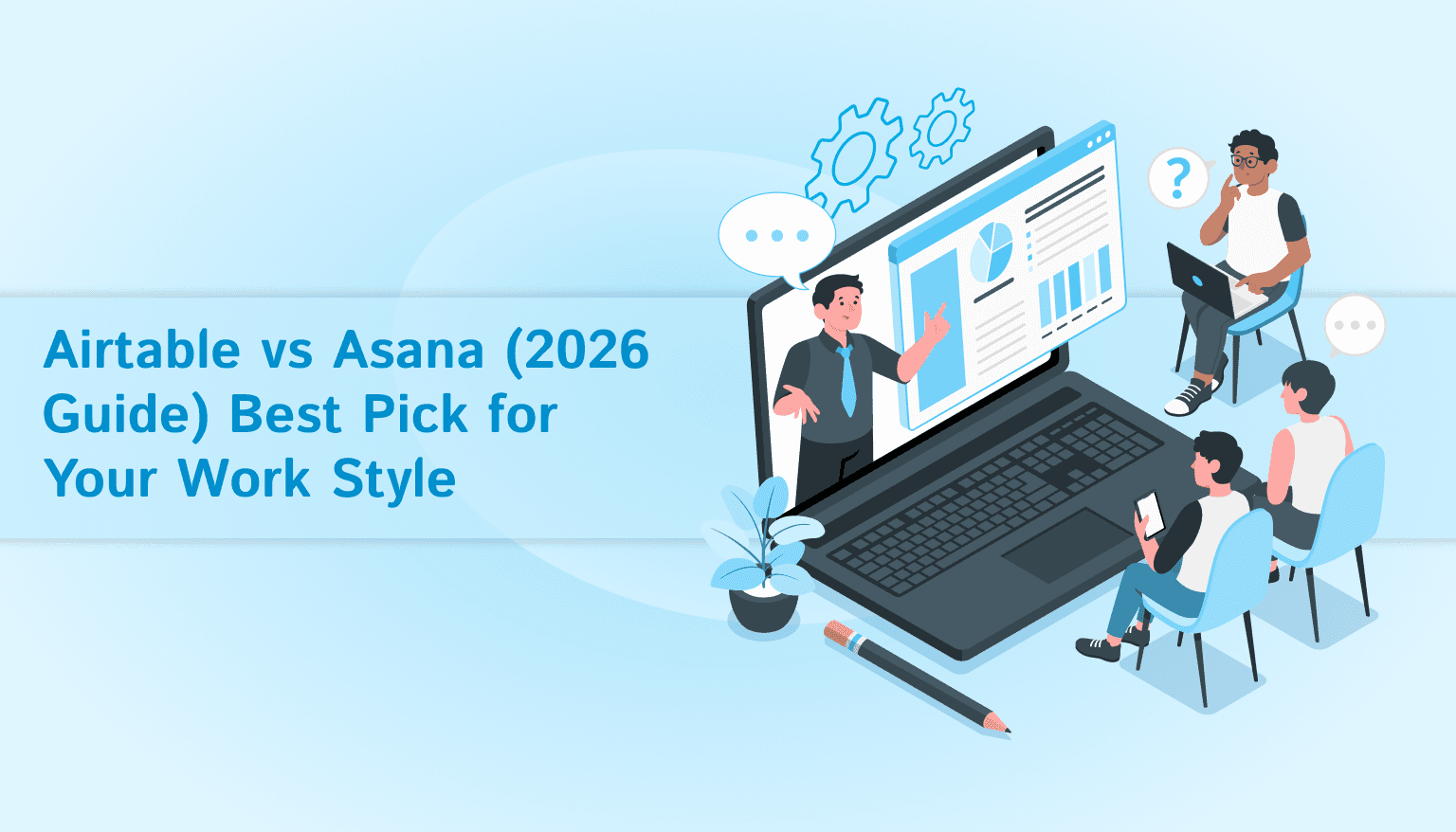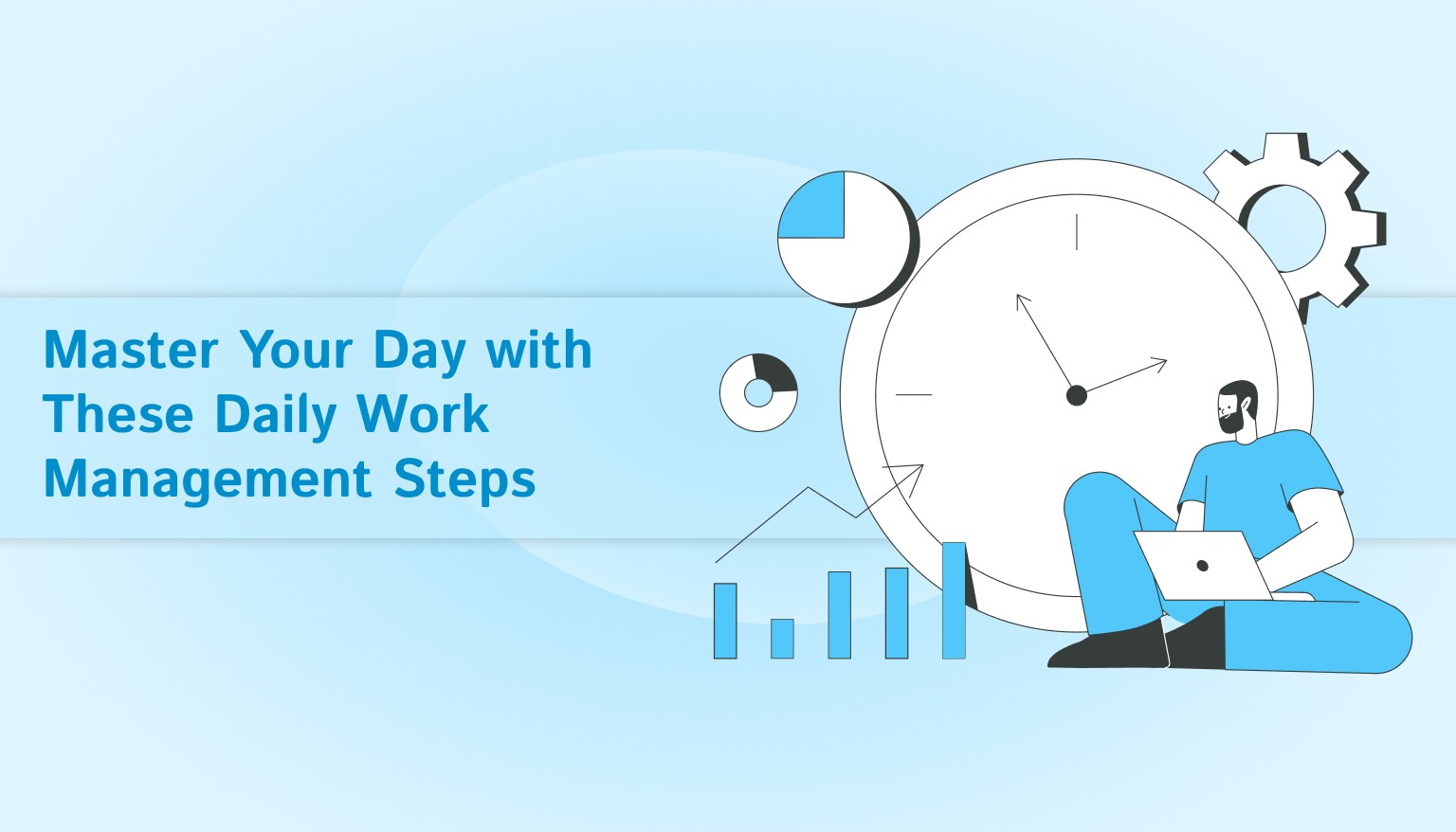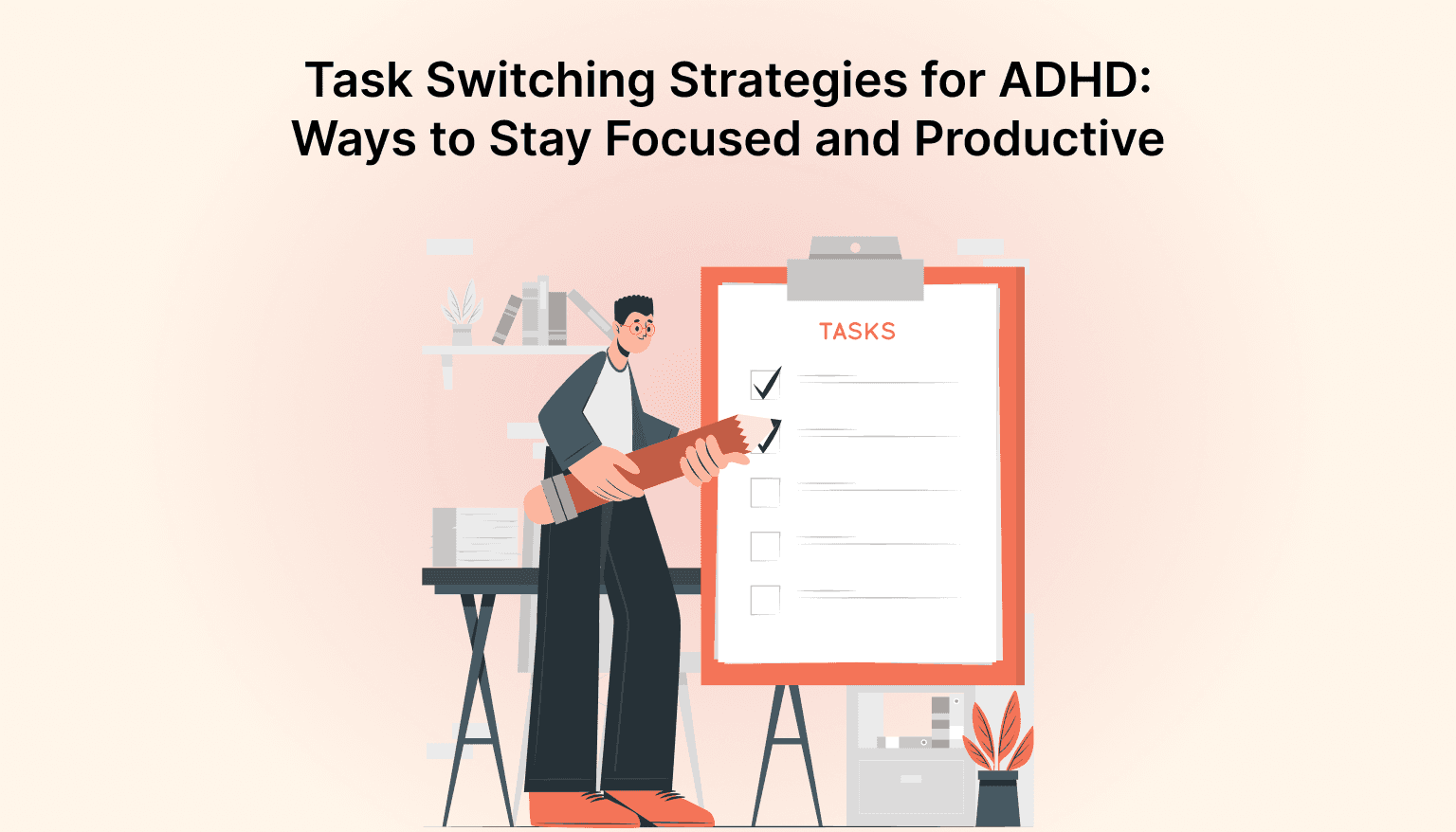ADHD Habit Trackers: How to Build Consistency Without Overwhelm
8
Struggling to stay on top of your work with ADHD? In a fast-paced professional environment, distractions, time slipping away, and a mounting to-do list can quickly become overwhelming. For busy professionals, whether you're a founder, executive, or remote worker, keeping focus and organization in check feels like an uphill battle.
Enter ADHD habit trackers. These tools are designed to break your day into manageable chunks, reduce overwhelm, and boost productivity. They’re the perfect way to structure your routine and regain control over your time.
In this blog, we’ll explore how ADHD habit trackers can transform your daily workflow, the features to look for, and how they can help you stay on track with your goals.
TL;DR
ADHD habit trackers help busy professionals maintain structure: They address key ADHD challenges like distractibility, time blindness, and task initiation.
Effective habit trackers integrate time and tasks: Tools that combine time management with task tracking reduce overwhelm and keep you on track.
Customization is key: Choose a habit tracker that adapts to your particular needs and work style.
Consistency builds productivity: Regular use of habit trackers helps solidify routines and encourages focus.
Akiflow streamlines task and time management: Centralize your tasks and calendar in one tool to enhance efficiency and reduce tool-switching.
How ADHD Affects Professional Performance?
ADHD can significantly impact how professionals handle their daily tasks. For individuals with ADHD, common symptoms such as distractibility, time blindness, and difficulty prioritizing tasks make productivity a constant challenge.
Let’s explore how these traits affect work performance and why ADHD-specific tools are necessary.
Distractibility: Professionals with ADHD often struggle to stay focused on one task. Small distractions can derail the workday, leading to incomplete tasks and delays. This is especially difficult for those requiring deep, uninterrupted work, like developers or executives.
Time Blindness: A key symptom of ADHD is the inability to accurately gauge how long tasks will take. As a result, professionals often overestimate their ability to meet deadlines, leading to procrastination, last-minute sprints, or missed deadlines.
Executive Dysfunction: With ADHD, prioritizing and organizing tasks can be a major hurdle. Professionals may have difficulty managing complex workflows, resulting in missed meetings or incomplete projects.
Difficulty Managing Overload: ADHD often leads to feeling overwhelmed when juggling multiple tasks. Professionals may struggle to break down projects into smaller, manageable parts, increasing the chance of burnout.
Impaired Task Initiation: Getting started on tasks can feel like the hardest part of the workday for those with ADHD. This mental barrier often leads to procrastination, resulting in rushed or unfinished work.
This is where ADHD habit trackers come in. They provide the necessary structure to help individuals with ADHD break tasks down into manageable chunks, prioritize effectively, and stay on track, even amidst distractions.
Now let’s dive into the features that make a great ADHD habit tracker.
What Makes an Effective ADHD Habit Tracker?
Not all habit trackers are created equal. When choosing an ADHD habit tracker, professionals should prioritize certain features to ensure the tool supports their specific needs:

Simplicity and Low Friction: ADHD-friendly tools work best when they are easy to use, with minimal clicks and clear, visually intuitive designs. Avoid tools that overwhelm with unnecessary complexity.
Time + Task Integration: Instead of merely listing tasks, effective ADHD habit trackers integrate tasks with time, showing when a task is scheduled and how long it will take. This helps eliminate the common ADHD struggle of “time blindness.”
Customization and Flexibility: Look for tools that help you to adapt the tool to your workflow. This can mean custom notifications, task prioritization features, and flexible scheduling options.
Visual Cues: Tools that use color-coding or progress bars make it easier to track habits and stay motivated throughout the day. Visual reminders can help mitigate the tendency to forget important tasks or deadlines.
Ease of Use Across Devices: Choose a tracker that syncs seamlessly across your phone, tablet, and computer to ensure accessibility wherever you are.
Progress Tracking: A habit tracker that shows progress over time can help you stay motivated, visually highlighting your success and areas for improvement.
These features not only enhance usability but help professionals with ADHD regain control over their schedules.
Now that we know what makes an effective tracker, let’s explore how to make it a daily habit.
Also Read: How Time Blocking Can Help Manage ADHD and Improve Your Productivity
How to Incorporate ADHD Habit Trackers into Your Daily Routine?
To make the most of an ADHD habit tracker, you need to incorporate it into your daily routine. Here’s how:
Morning Routines: Start each day with a structured habit. Use your habit tracker to review your tasks and set your priorities for the day. This gives you a clear roadmap and helps you get started on the right foot.
Workday Structure: Throughout your workday, rely on your habit tracker to organize tasks and create a focused work environment. Time-block your tasks, schedule breaks, and adjust as necessary based on shifting priorities.
Evening Reviews: In the evening, use your habit tracker to assess the day’s progress. Did you complete all your tasks? If not, reschedule them for the next day. Reviewing your habits regularly helps reinforce consistency and allows you to make adjustments when needed.
Consistency: Building consistency with your habit tracker is key to success. The more you use it, the more natural it becomes to integrate it into your workflow.
Set Realistic Goals: Don’t overwhelm yourself by scheduling too many tasks. Instead, break larger tasks into smaller, actionable steps and assign them to specific times.
Track Positive Behaviors: Don’t just track negative habits or missed tasks. Use your tracker to celebrate small wins, like completing a difficult task or sticking to your time block.
Building these habits will help you stay on track. Next, let’s look at how ADHD habit trackers help tackle specific productivity hurdles.
How to Overcome ADHD Productivity Problems with Habit Trackers?
ADHD often brings challenges like distractions, procrastination, and time blindness. Fortunately, ADHD habit trackers can help address these issues:

Distractions and Time Blindness: By integrating tasks with your calendar, habit trackers help you stay on track and avoid losing track of time. This reduces the tendency to veer off course during your workday.
Procrastination: Breaking tasks into smaller, manageable chunks and setting reminders can help you combat procrastination. Habit trackers are designed to offer gentle nudges when tasks are due, helping you stay on top of deadlines.
Adaptability: ADHD habit trackers should be flexible, allowing you to quickly reprioritize tasks when focus shifts. Tools that let you drag and drop tasks or reschedule them on the fly ensure that your day remains adaptable, no matter how your focus fluctuates.
Visual Cues for Focus: Many ADHD habit trackers use color-coded systems or progress bars to indicate how close you are to completing a task, which provides visual cues and reinforces focus.
Reduced Cognitive Load: By organizing your tasks and routines in one place, habit trackers reduce the mental clutter of constantly switching between different apps or platforms, making it easier to concentrate.
Next, let’s see how Akiflow specifically supports professionals in managing their tasks and schedules.
Also Read: Time Blocking and Task Management
How Akiflow Transforms ADHD Habit Tracking into Seamless Productivity?
For busy professionals with ADHD, maintaining focus and keeping tasks organized can feel like an uphill battle. Akiflow goes beyond being just another task manager; it’s a comprehensive solution that integrates your tasks, calendar, and time management systems into one fluid workflow.

Here’s how Akiflow simplifies your ADHD habit tracking and helps you maintain control of your day:
Unifying Your Tasks Across Multiple Platforms
ADHD can make it difficult to stay on top of tasks when they’re scattered across different tools. Akiflow removes this friction by pulling in tasks from multiple sources, whether it’s Gmail, Slack, Todoist, or even Asana, into a single centralized view. This means no more jumping between apps or losing track of critical tasks. Time-Blocking to Minimize Distractions and Boost Focus
Time blindness and distractions are major challenges for ADHD professionals. Akiflow helps you overcome these by allowing you to drag and drop tasks directly into time-blocked slots in your Google or Outlook calendar. This system reduces the constant back-and-forth of deciding when and what to do next. Time-blocking ensures that each task has a dedicated slot, helping you focus on one thing at a time and preventing task-switching that can derail your productivity.Automating the Repetitive to Free Up Mental Space
One of the biggest hurdles in staying productive is dealing with repetitive tasks and constant task entry. Akiflow makes this easy by automatically syncing with your existing tools. Tasks that come in through your email or other platforms are instantly added to Akiflow, meaning you don’t have to copy-paste or re-enter details manually.Flexible Reviews to Stay on Track
ADHD often makes it tough to stay on top of priorities when things shift quickly. Akiflow understands this and makes reviewing and adjusting your plan simple. With its unified dashboard, you can quickly glance at your upcoming tasks and events. You can easily drag and drop items to reschedule or reprioritize, giving you the flexibility to adjust when unexpected changes arise.
Conclusion
ADHD habit trackers are invaluable for professionals seeking to improve task management and productivity. By centralizing your tasks, integrating time-blocking, and offering seamless review options, these tools help cut through distractions and foster better focus.
The real benefit lies in customizing these trackers to fit your workflow, whether it’s through smart prioritization, time management, or visual tracking. That’s when these tools shift from being just another app to an essential part of your productivity routine.
If you’re ready to regain control of your day and alleviate the stress of ADHD, try experimenting with different tools to find what works best for you. Akiflow can serve as your productivity backbone, merging tasks and calendars into one cohesive system, providing clarity, focus, and structure.
Try Akiflow today and see how it can help you work with more focus, less friction, and a lot less overload.
FAQs
Q1: Can ADHD habit trackers replace medication or therapy?
No, ADHD habit trackers complement treatment but should not replace clinical support.
Q2: Are ADHD habit trackers only useful for adults with ADHD?
Not at all students, freelancers, and busy professionals also benefit from the structure and consistency provided by these tools.
Q3: How long does it take to see results from using ADHD habit trackers?
Most users notice better task management and focus within 2-3 weeks of consistent use.
Q4: What happens if I miss a day or a task with my ADHD habit tracker?
Missing a day is common, but the key is to get back on track the next day. Habit trackers are designed to help you build consistent routines, not to penalize slip-ups.
Q5: Are there any risks to using too many habit trackers?
Yes, tool overload can lead to confusion and decreased effectiveness. Start with one or two tools that fit your workflow and gradually scale.




